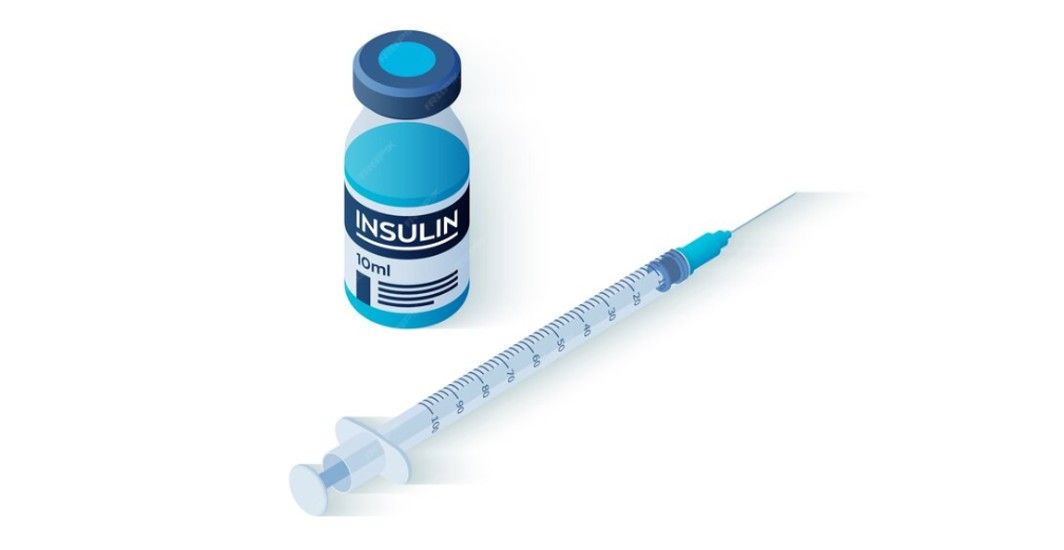Diabetes Management
The Link between Prediabetes and Polycystic Ovary Syndrome (PCOS)
1 min read
By Apollo 24|7, Published on - 06 May 2024, Updated on - 06 April 2025
Share this article
0
1 like
.jpg?tr=q-80)
Did you know that a sizable 30% to 40% of women with Polycystic Ovary Syndrome (PCOS) also struggle with prediabetes? This dual challenge brings with it an increased risk of developing type 2 diabetes and cardiovascular diseases. However, you can take control of your health today.
How Can PCOS be Linked to Prediabetes?
With PCOS, women often experience problems such as impaired glucose tolerance (IGT) or impaired fasting glucose (IFG), conditions characterised by higher than-normal blood sugar levels but not high enough to be classified as diabetes.
These conditions are usually closely associated with insulin resistance, which means the body is not using insulin efficiently. This inefficient insulin use can significantly increase the risk of type 2 diabetes and heart disease in women with PCOS.
Risk Factors for Prediabetes in PCOS
Certain factors can make the link between prediabetes and PCOS even stronger. Weight, family history, and insulin resistance all play a significant role in increasing the risk of prediabetes and, eventually, type 2 diabetes in women with PCOS.
Unfortunately, up to 70% of women with PCOS and prediabetes may progress to type 2 diabetes in later life.
Managing Prediabetes in PCOS
However, all is not lost.
Lifestyle interventions such as maintaining a healthy diet and engaging in regular physical activity can act as a first line of defence in managing PCOS and reducing the risk of prediabetes.
Medications like Metformin, typically used for type 2 diabetes, have also shown effectiveness in managing symptoms of PCOS by improving insulin and blood sugar levels, stimulating ovulation, and reducing the risk of endometrial cancer associated with irregular periods.
A comprehensive plan involving lifestyle modifications, medication, and regular monitoring is vital to manage the association between prediabetes and PCOS. By adopting such an approach, we can greatly improve the metabolic health and overall well-being of those affected by these conditions.
Diabetes Management
Consult Top Diabetologists
View AllLeave Comment
Recommended for you

Diabetes Management
What Influences Insulin Action?
Insulin plays a major role in managing diabetes by regulating blood sugar levels. However, its effectiveness may be influenced by various factors, including insulin sensitivity and resistance, injection technique and site, blood flow and temperature, levels of physical activity, hormone levels, and the specific properties of the insulin being used.
.jpg?tr=q-80)
Diabetes Management
Diabetes-related Brain Fog: Recognising the Symptoms
Living with diabetes can sometimes result in brain fog, making you feel confused or forgetful. Recognising the symptoms and understanding the causes can help you manage it effectively. Regular exercise, a balanced diet, and good sleep patterns are crucial to control brain fog. Join the Apollo Super 6 programme for personalised guidance and support in managing symptoms effectively.

Diabetes Management
Watermelon and Diabetes: Nutrition, Consumption, and Benefits
Can individuals with diabetes benefit from eating watermelon? Yes! Watermelon's high GI might seem daunting, but its low glycaemic load and high water content make it a viable addition to a balanced diabetic diet. By pairing it with fibre, protein, and healthy fats, you can enjoy the sweetness of watermelon while managing your diabetes effectively. Remember, personal dietary advice from a nutritionist can help tailor this approach to your unique dietary needs.
Subscribe
Sign up for our free Health Library Daily Newsletter
Get doctor-approved health tips, news, and more.
Visual Stories

8 Fruits That are Incredibly Healthy for Diabetes
Tap to continue exploring
Recommended for you

Diabetes Management
What Influences Insulin Action?
Insulin plays a major role in managing diabetes by regulating blood sugar levels. However, its effectiveness may be influenced by various factors, including insulin sensitivity and resistance, injection technique and site, blood flow and temperature, levels of physical activity, hormone levels, and the specific properties of the insulin being used.
.jpg?tr=q-80)
Diabetes Management
Diabetes-related Brain Fog: Recognising the Symptoms
Living with diabetes can sometimes result in brain fog, making you feel confused or forgetful. Recognising the symptoms and understanding the causes can help you manage it effectively. Regular exercise, a balanced diet, and good sleep patterns are crucial to control brain fog. Join the Apollo Super 6 programme for personalised guidance and support in managing symptoms effectively.

Diabetes Management
Watermelon and Diabetes: Nutrition, Consumption, and Benefits
Can individuals with diabetes benefit from eating watermelon? Yes! Watermelon's high GI might seem daunting, but its low glycaemic load and high water content make it a viable addition to a balanced diabetic diet. By pairing it with fibre, protein, and healthy fats, you can enjoy the sweetness of watermelon while managing your diabetes effectively. Remember, personal dietary advice from a nutritionist can help tailor this approach to your unique dietary needs.

